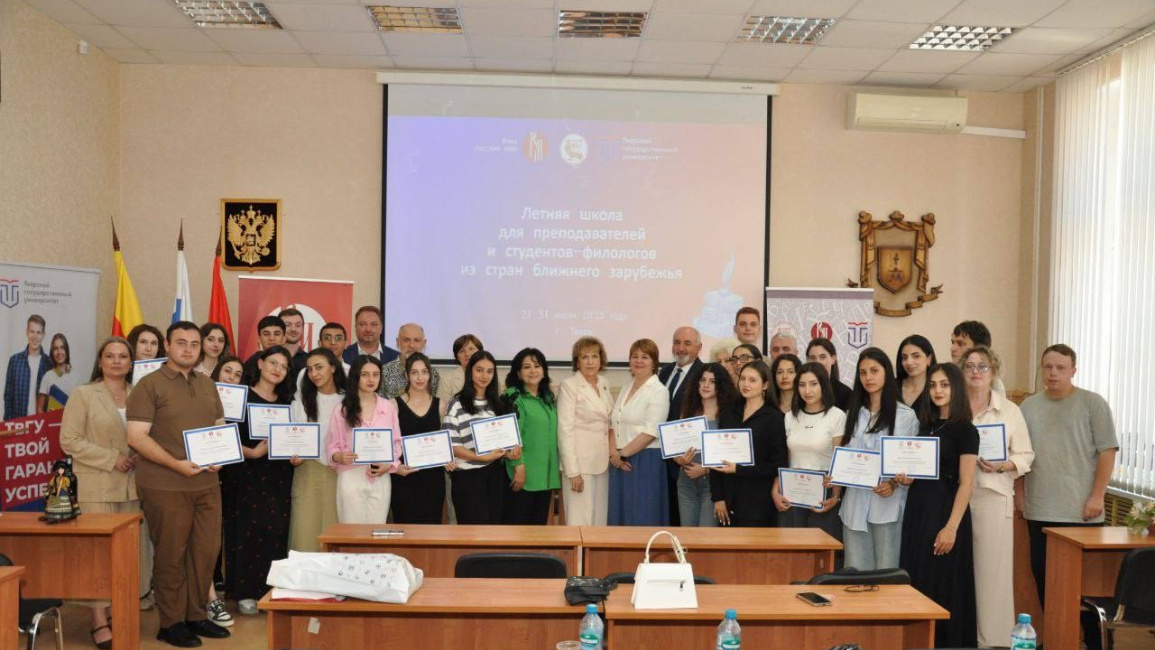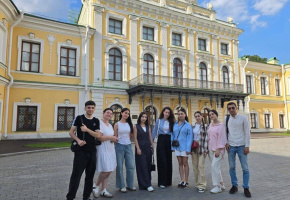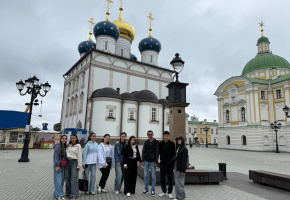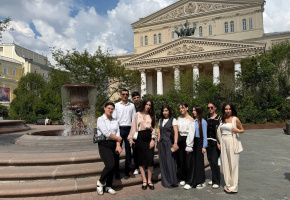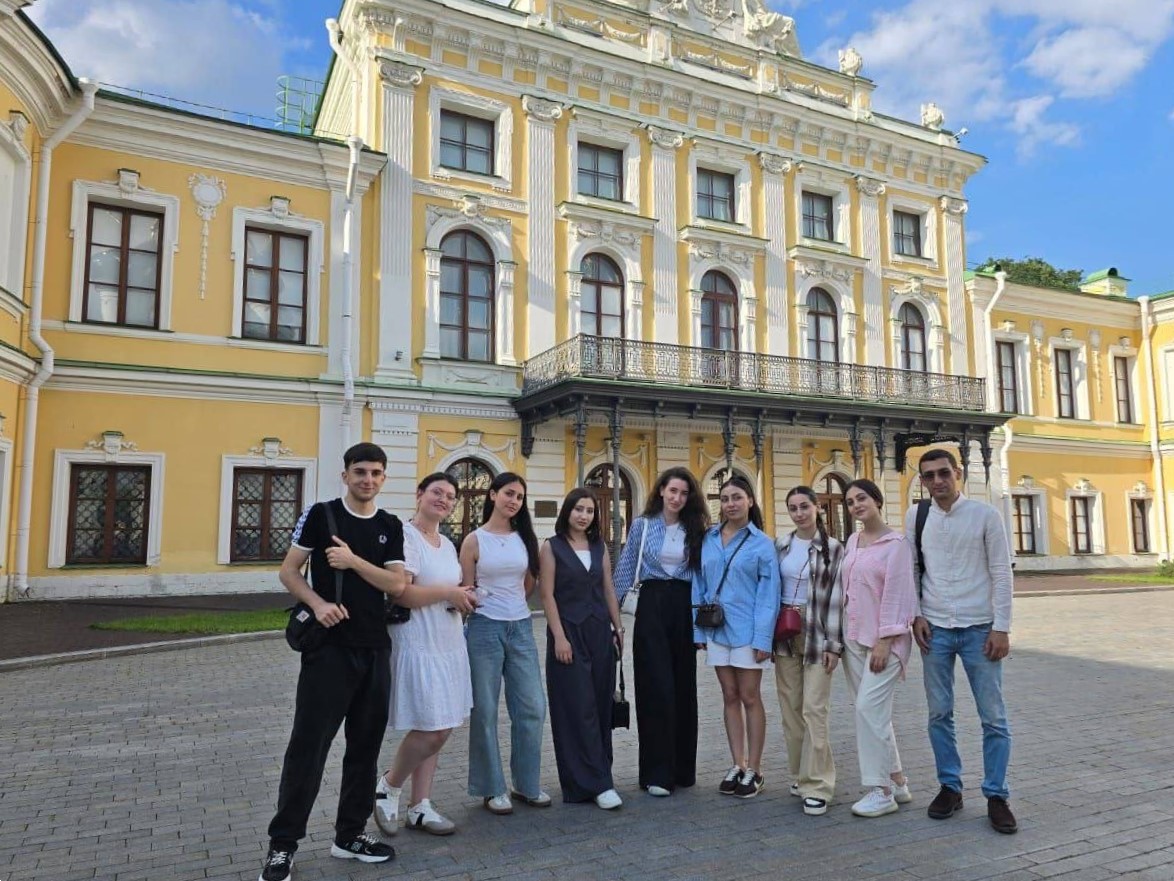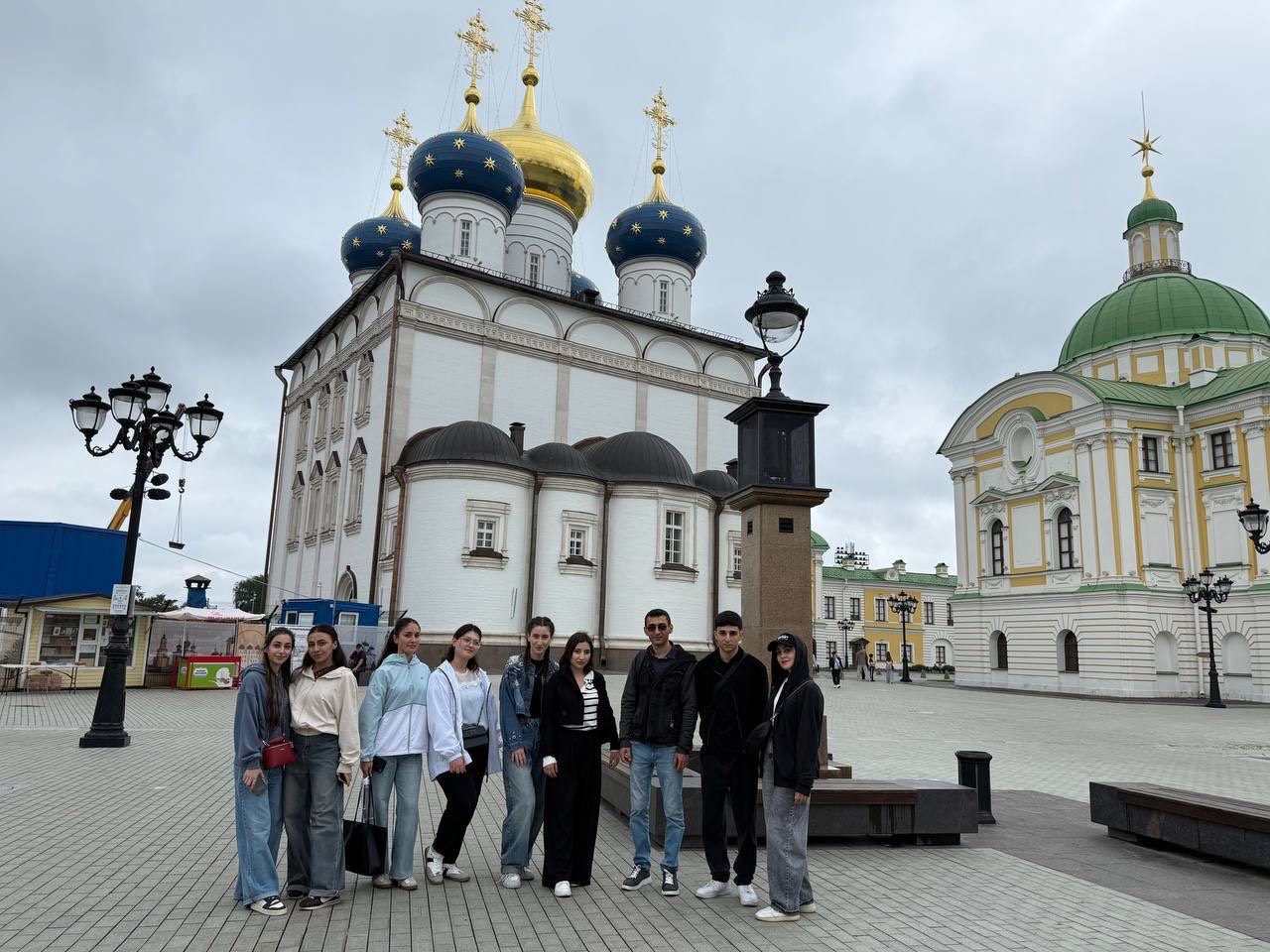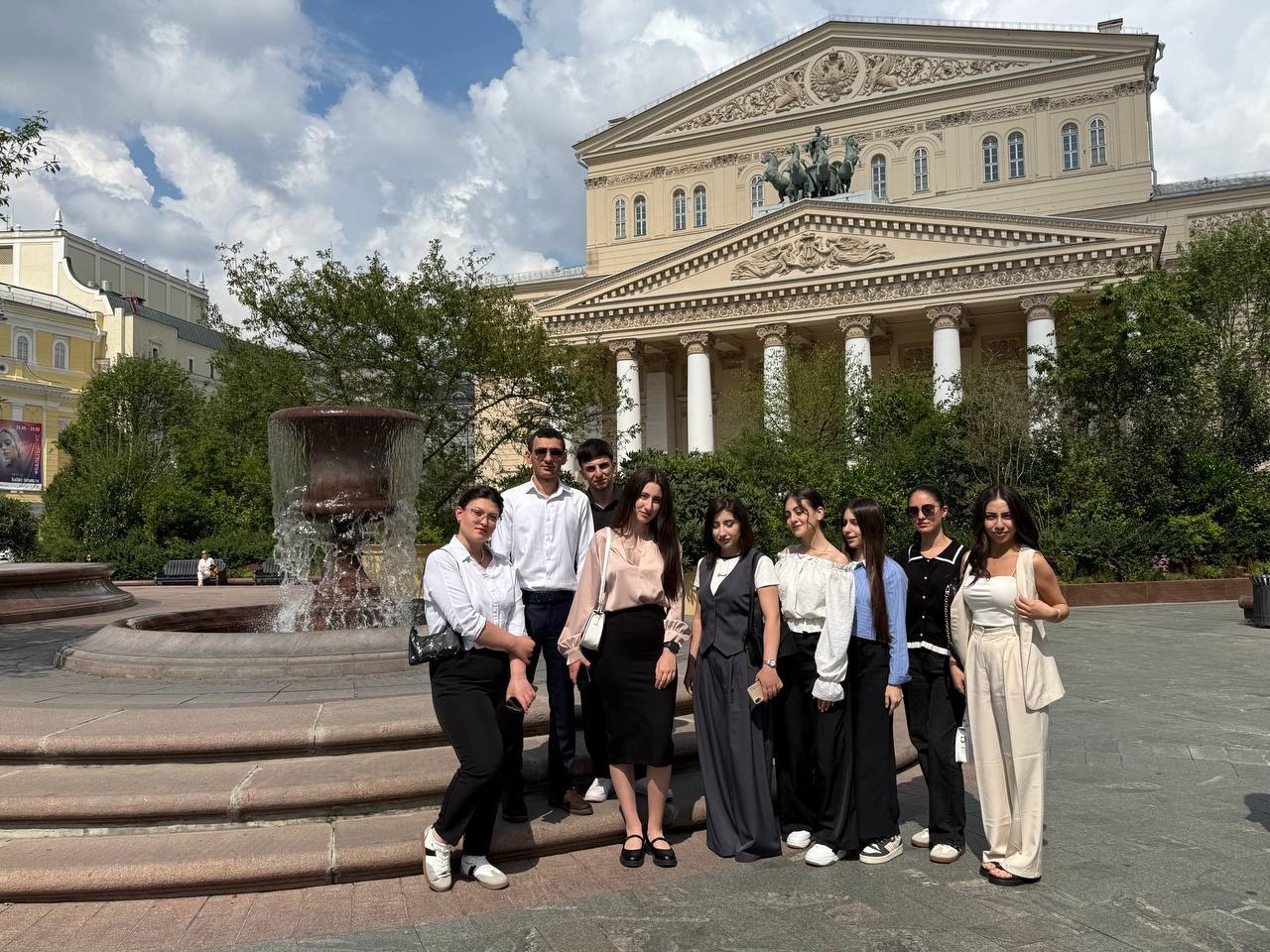Eight third-year undergraduate students from YSU Faculty of Russian Philology took part in an international educational program organized within the framework of a Russian language summer school held in Tver, Russia, on the eve of the new academic year.
During the summer school, YSU students engaged in various educational activities while also exploring the country’s historical and cultural heritage.
At Tver State University, they participated in programs including "The Image of the Russian Linguistic World," "Current Issues in Contemporary Russian Language," "Armenian Words in Russian Poetry," "The Great Patriotic War: Historical Aspect," among others. The program also featured professional lectures and seminars dedicated to the life and work of Alexander Griboyedov.
In addition to the academic program, students visited historical and cultural sites in Tver as well as other Russian cities such as Rzhev, Staritsa, and Torzhok.
The students also traveled to Moscow, the capital of Russia, where they toured symbolic historical and cultural landmarks, including Red Square and the Tretyakov Gallery. An excursion to the Federation Council of the Federal Assembly of the Russian Federation was also arranged for the participants.
The university students met with representatives of the Armenian community in Tver, learned about their activities, and visited the Holy Resurrection Church in Tver.
At the conclusion of the ten-day summer school, participants were awarded certificates.
Edgar Arshakyan, lecturer at the Chair of Russian Literature at Yerevan State University and group leader of the students traveling to Russia, highlighted the significance of such programs. He noted that the summer school, with its diverse and comprehensive curriculum, provided students not only with the opportunity to deepen their knowledge of the studied language but also to discover new perspectives on the distinctive features of Russian culture.
The international program, held from July 21 to 31, was organized by the Russian Center operating in Tver with the support of the Russkiy Mir Foundation. The partner institution for the program was Tver State University.
